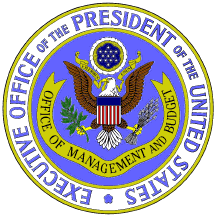Regulation
Update: U.S. Supreme Court Denies Review in California Low Carbon Fuel Standard Case
Justices Decline to Address Constitutionality of LCFS
The U.S. Supreme Court today denied certiorari in closely-watched cases in which the constitutionality of California’s Low Carbon Fuel Standard (LCFS) was being challenged. The LCFS is, in turn, an integral part of the state’s multifaceted strategy to reduce California’s aggregate greenhouse gas emissions as required under AB 32, the state’s landmark 2006 climate change …
CONTINUE READINGCalifornia’s Low Carbon Fuel Standard: Before the Supreme Court
Will the Justices Choose to Decide the LCFS’s Constitutionality?
You might think that the U.S. Supreme Court, having decided the Utility Air Regulatory Group v. EPA Clean Air Act case on Monday, was done for the current Term when it comes to environmental law and policy. Think again. Today the justices met in conference to decide whether to grant review in a large number of pending …
Continue reading “California’s Low Carbon Fuel Standard: Before the Supreme Court”
CONTINUE READINGOil By Rail: Nine Things California Can Do to Increase Safety
While FRA Considers New Federal Regulations, States Can Ramp Up Prevention and Emergency Response
At a joint Senate and Assembly hearing last week on oil by rail safety in California, some lawmakers expressed frustration at slow federal action, and asked what California can do to increase public safety. My testimony focused on federal preemption issues, defining areas where the state can regulate, and those where it is preempted by …
Continue reading “Oil By Rail: Nine Things California Can Do to Increase Safety”
CONTINUE READINGBreaking News: U.S. Supreme Court Renders Split Decision in Major Climate Change Case
The U.S. Supreme Court today issued its long-awaited decision in Utility Air Regulatory Group v. Environmental Protection Agency, the justices’ third encounter with climate change law and policy. In a Solomonic ruling, the Court ruled that EPA lacks authority to require the operators of “stationary sources” of greenhouse gas emissions (power plants, factories, etc.) to obtain …
CONTINUE READINGCalifornia Court Upholds State Water Board’s Broad Authority to Ban Unreasonable Uses of Water
Ruling is Especially Timely, Given California’s Ongoing and Severe Drought Conditions
I recently wrote about a then-pending court case in which California grape growers were challenging the State Water Resources Control Board’s limits on the growers’ diversion of water from California rivers and streams to provide frost protection for their grapes. That litigation is important because it goes to the heart of the Board’s authority under …
CONTINUE READINGMick Jagger on Chemical Reform
Vermont’s new chemical program looks to be a mixed bag
Vermont just joined the posse of states taking chemical regulation reform into their own hands in the face of inaction in Congress. Last week the Green Mountain State enacted a new law covering chemicals in children’s products. (A children’s product is defined as “any consumer product, marketed for use by, marketed to, sold, offered for …
Continue reading “Mick Jagger on Chemical Reform”
CONTINUE READINGUARG Decision — Due Any Day Now — Should Not Undermine the Legality of CAA Section 111d Rules
Case involves statutory interpretation questions not relevant to power plant rules
The U.S. Supreme Court should issue a decision in Utility Air Regulatory Group (UARG) v. EPA very soon, perhaps as early as Monday (the Court typically issues its opinions on Mondays and Thursdays at 10:00 a.m. EST). The case involves an important set of regulations designed to regulate greenhouse gases from large new “sources” (industrial facilities, chemical …
CONTINUE READINGDoes OIRA Live Up To Its Own Standards?
OIRA should conduct a cost-benefit analysis of its own activities and explore alternatives to its current oversight methods.
A White House office called OIRA polices regulations by other agencies in the executive branch. OIRA essentially performs the role of a traditional regulator – it issues regulations that bind other agencies, and agencies need OIRA approval before they can issue their own regulations. Essentially, then OIRA regulates agencies like EPA the same way that …
Continue reading “Does OIRA Live Up To Its Own Standards?”
CONTINUE READINGAnd Now For Something Completely Different: Chemical Facility Safety?
For the past few days we have all been focused—justifiably—on the EPA’s proposed carbon rule for power plants. But that’s not all EPA and the rest of the federal government have been up to recently. Today a federal interagency working group established under Executive Order 13650, Improving Chemical Facility Safety and Security (“EO 13650”) issued …
Continue reading “And Now For Something Completely Different: Chemical Facility Safety?”
CONTINUE READINGLegislative Tantrums Over EPA’s Proposed Carbon Rule
Politico reports that eight state legislatures have passed bills protesting EPA’s proposed power plant regulation, in at least one case refusing to comply with any eventual regulations. This was a childish tantrum rather than an adult response. The ultimate hope, according to Politico, is that many states will refuse to submit compliance plans, and that this …
Continue reading “Legislative Tantrums Over EPA’s Proposed Carbon Rule”
CONTINUE READING







